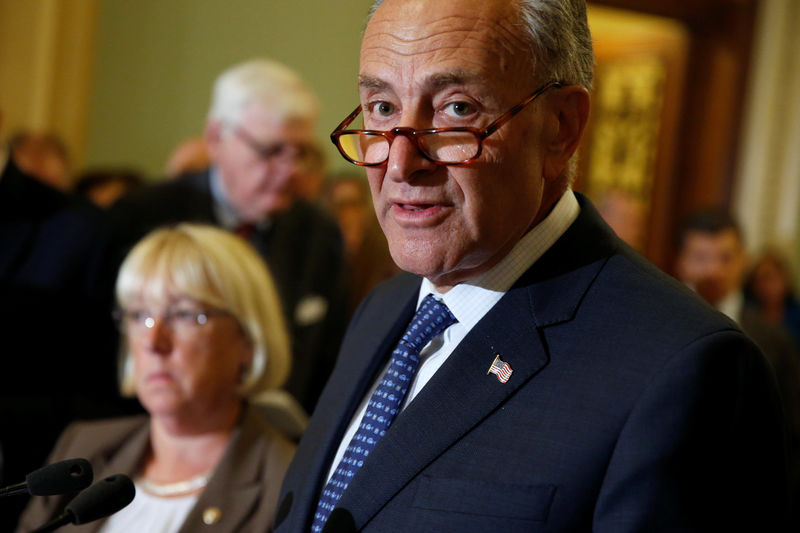By David Shepardson
WASHINGTON (Reuters) - Democrats in Congress will press U.S. President Donald Trump at a White House meeting on Wednesday for details on how to pay for a massive boost in U.S. infrastructure spending after agreeing in April to try to win approval of a $2 trillion package.
House Speaker Nancy Pelosi and Senate Democratic Leader Chuck Schumer said in a joint statement late on Tuesday that Trump in April had agreed to provide "ideas for pay-fors," a term used in Washington for new taxes or government spending reductions.
"On Wednesday, we look forward to hearing the President's plan for how to pay for this package," they said. The pair will be joined by other key Democrats in Congress, including those on committees overseeing infrastructure issues.
The Democrats made no mention of Trump's demand on Tuesday that Congress first approve a new North American free trade deal before moving to infrastructure. Trump also suggested Congress use a surface transportation measure that expires in September 2020 as a vehicle for infrastructure spending.
On April 30, Trump and Democratic leaders agreed to build roads, bridges, power grids, water and broadband infrastructure, but delayed the tough decisions on how to fund it to another meeting.
Administration officials and congressional aides are skeptical that 18 months before the election both sides will have the political will to find substantial new revenue.
Senator Tom Carper, the top Democrat on the Environment and Public Works Committee, said in an interview on Tuesday that the United States has an $800 billion backlog of badly needed projects.
"We need for (Trump) to show some leadership," Carper said, saying Trump needs to explain how he will fund repairs. "If he does ... he will not be by himself."
Fitch Ratings said last week that any U.S. plan for boosting infrastructure "will need to provide for consistent, continued federal funding and more diverse funding sources to fully address the infrastructure deficit."
Fitch noted that as the federal government has failed to act, 31 states have raised gas taxes since 2013, including four in 2019. But Fitch said state and local governments are unable to raise adequate funds to fully address infrastructure needs on their own.
Republicans are not willing to roll back tax cuts from Trump's 2017 tax reform legislation, an idea Democrats who largely opposed that measure have floated as a way of financing the infrastructure plans.
Last month, top economic adviser Larry Kudlow said Trump has not decided whether he would support an increase in fuel taxes to fund infrastructure projects.
On Tuesday, Representative Earl Blumenauer, a Democrat, introduced legislation to hike the fuel tax by five cents a year over five years and index it to inflation to pay for repairs.
The federal gas tax was last raised in 1993.
